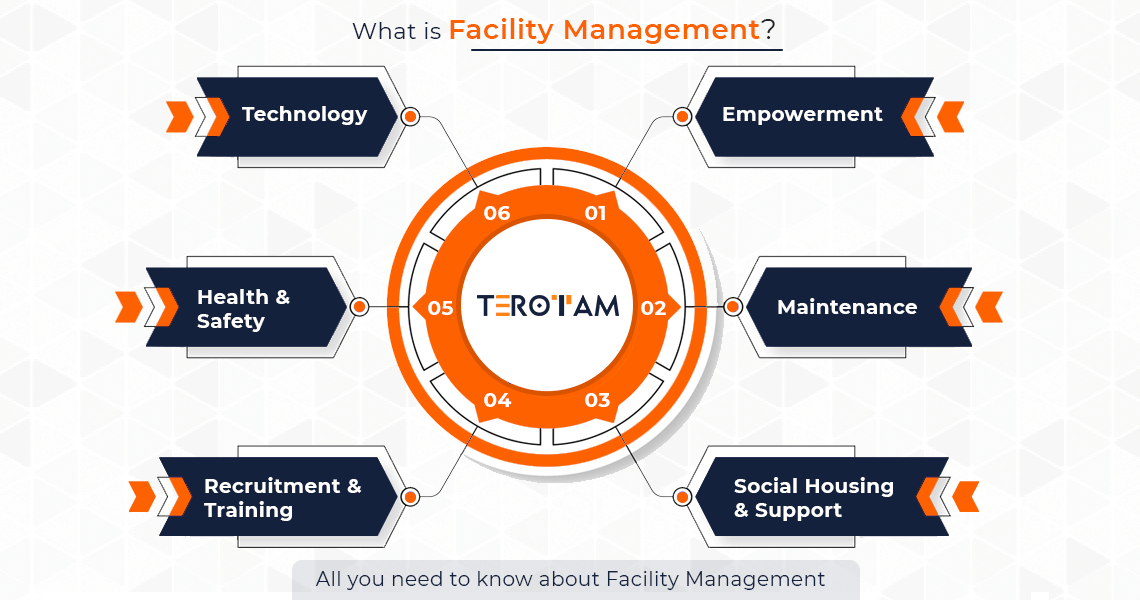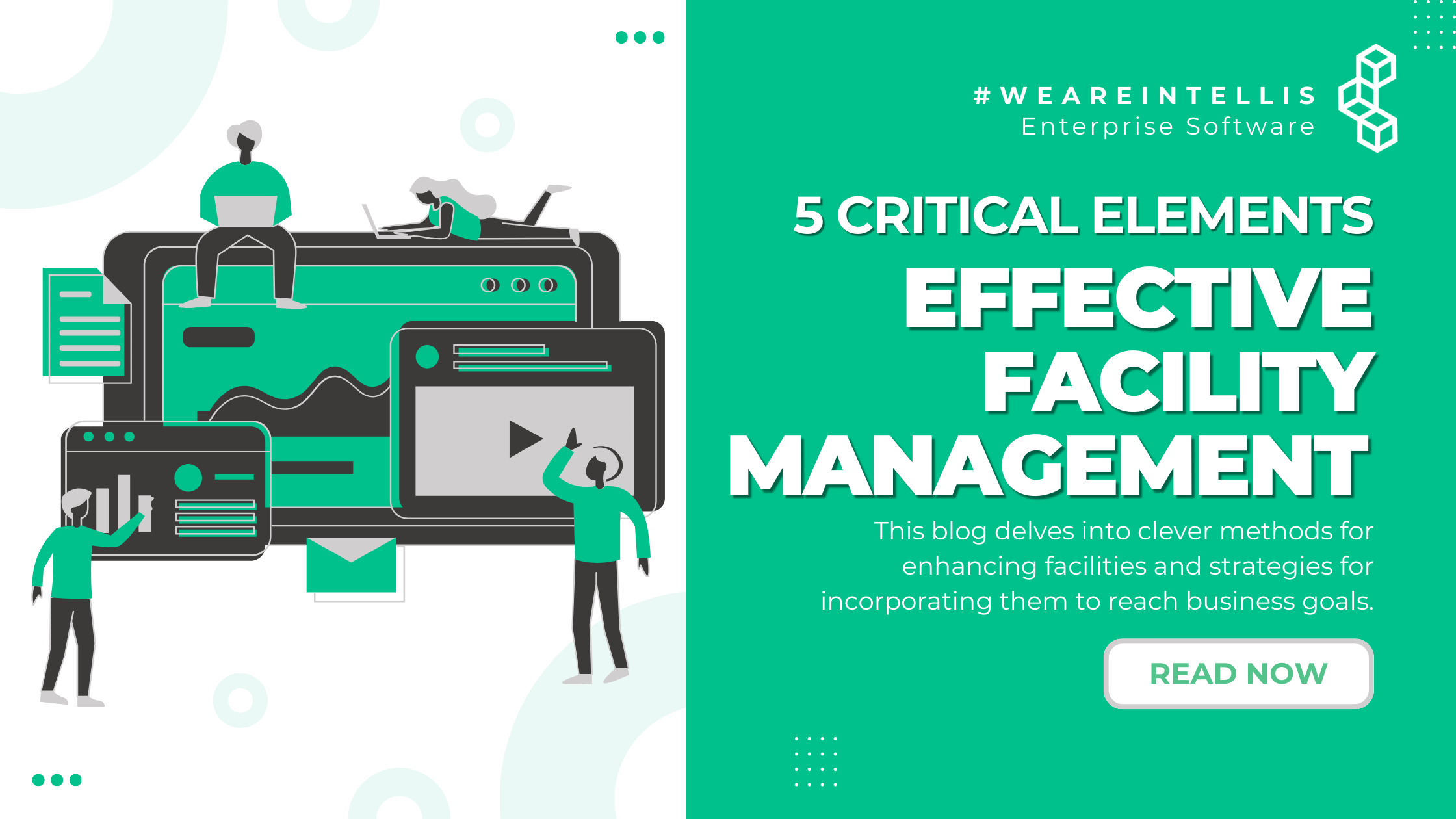Facility Management-- Crucial Services for Reliable Workflow
Facility Management-- Crucial Services for Reliable Workflow
Blog Article
Key Patterns Forming the Future of Center Administration in 2024
As we look in advance to 2024, the landscape of facility management is poised for considerable change, driven by numerous essential fads. The assimilation of clever structure modern technologies and a change in the direction of data-driven decision-making assurance to enhance functional effectiveness while focusing on sustainability in technique.
Smart Building Technologies

Smart building innovations include a large range of systems, including intelligent lighting, HVAC controls, and safety and security systems. By integrating these systems, facility managers can keep an eye on and adjust specifications in real-time, resulting in significant decreases in energy waste and operational prices. Clever sensing units can discover tenancy levels and adjust illumination and temperature appropriately, making certain that power is only utilized when essential.
Additionally, these technologies help with improved data collection, allowing organizations to track usage patterns and identify opportunities for more renovations. The application of clever structure technologies not just adds to sustainability objectives yet additionally produces much healthier work atmospheres that can enhance employee performance and fulfillment.
As we relocate into 2024, the adoption of clever building modern technologies will likely speed up, showing a broader shift in the direction of more smart, receptive, and sustainable facility management techniques.
Data-Driven Decision Making
Significantly, organizations are leveraging data-driven decision making to boost facility administration methods. By taking advantage of information analytics, center managers can obtain workable insights that significantly improve functional efficiency and source allocation. The combination of innovative modern technologies, such as IoT sensors and real-time tracking systems, allows the collection of large quantities of information on structure performance, occupancy rates, and energy usage.
This wide range of details allows center supervisors to identify fads, predict upkeep requirements, and proactively address issues prior to they escalate. Anticipating analytics can anticipate devices failures, lowering downtime and repair service expenses. In addition, information visualization devices help with much better interaction amongst stakeholders, making certain that notified choices are made collaboratively.
Additionally, data-driven strategies enhance strategic planning by allowing center managers to examine the performance of present methods and make informed selections concerning financial investments in innovation or facilities. As organizations significantly focus on functional excellence, data-driven choice production is positioned to become a keystone of effective facility administration methods in 2024 and past. Inevitably, the capability to utilize data effectively will encourage companies to produce much more efficient, effective, and resilient centers.
Sustainability and Environment-friendly Practices
The emphasis on data-driven choice making naturally lines up with the expanding emphasis on sustainability and green techniques within facility management. As organizations increasingly prioritize ecological duty, center supervisors are leveraging analytics to enhance source use, lower waste, and lessen carbon footprints. This strategic method allows Website the combination of energy-efficient systems, such as LED lights, clever cooling and heating controls, and eco-friendly energy resources right into center procedures.
In addition, the application of lasting techniques extends beyond energy consumption. Center supervisors are embracing green products and advertising recycling initiatives to develop a round economy within their centers. This not just boosts the environmental account of the organization however additionally promotes a culture of sustainability among employees.
Compliance with environmental regulations is one more critical facet driving the fostering of eco-friendly practices. By utilizing information analytics, facility supervisors can monitor compliance metrics and determine areas for improvement, ensuring adherence to worldwide and local sustainability requirements.
Hybrid Job Models
A considerable change towards hybrid job models is improving the landscape of facility administration in 2024. This paradigm combines in-office and remote work, requiring a reevaluation of room use, resource allowance, and staff member engagement methods. Organizations are increasingly acknowledging the value of adaptable offices that accommodate diverse requirements and choices.
Center supervisors should adapt by carrying out versatile workplace styles that support collective initiatives while supplying areas for focused work. This includes the combination of innovation to help with seamless interaction and partnership amongst in-office and remote staff members. Smart structure options, geared up with sensors and analytics, permit real-time tracking of room use, allowing organizations to maximize their atmospheres efficiently.
Moreover, crossbreed work models emphasize the requirement for effective facility administration that prioritizes worker experience. In essence, the crossbreed job model is transforming facility management, urging a positive approach to meet the developing needs of the workforce.
Improved Resident Health
As organizations welcome hybrid work designs, a heightened emphasis on passenger wellness is ending up being indispensable to center administration strategies. Facility Management. This change recognizes that a healthy and balanced and satisfied labor force straight influences performance and retention rates. Facility supervisors are currently focusing on atmospheres that promote mental and physical wellness, integrating components such as natural illumination, biophilic design, view publisher site and available wellness sources

Modern technology plays a crucial duty in this advancement. Smart building systems can keep track of ecological elements and adjust settings in real-time, ensuring ideal comfort degrees - Facility Management. In addition, feedback mechanisms, such as occupancy sensors and worker studies, permit center supervisors to constantly fine-tune wellness efforts based upon occupant demands.

Verdict
In 2024, the future of center monitoring will certainly be considerably influenced by the combination of wise building modern technologies and data-driven decision-making, promoting enhanced operational efficiency. These fads collectively underscore the advancing landscape of center management in action to contemporary obstacles and possibilities.
Facility managers are embracing green products and promoting reusing initiatives to develop a circular economy within their facilities.A considerable shift towards hybrid job versions is reshaping the landscape of center monitoring in 2024.Additionally, hybrid job designs highlight the need for reliable center management that prioritizes worker experience.As companies welcome hybrid work designs, an increased focus on passenger health is coming to be important to center monitoring approaches.In 2024, the future of center administration will be significantly influenced by the assimilation of smart building modern technologies and data-driven decision-making, recommended you read cultivating enhanced functional performance.
Report this page